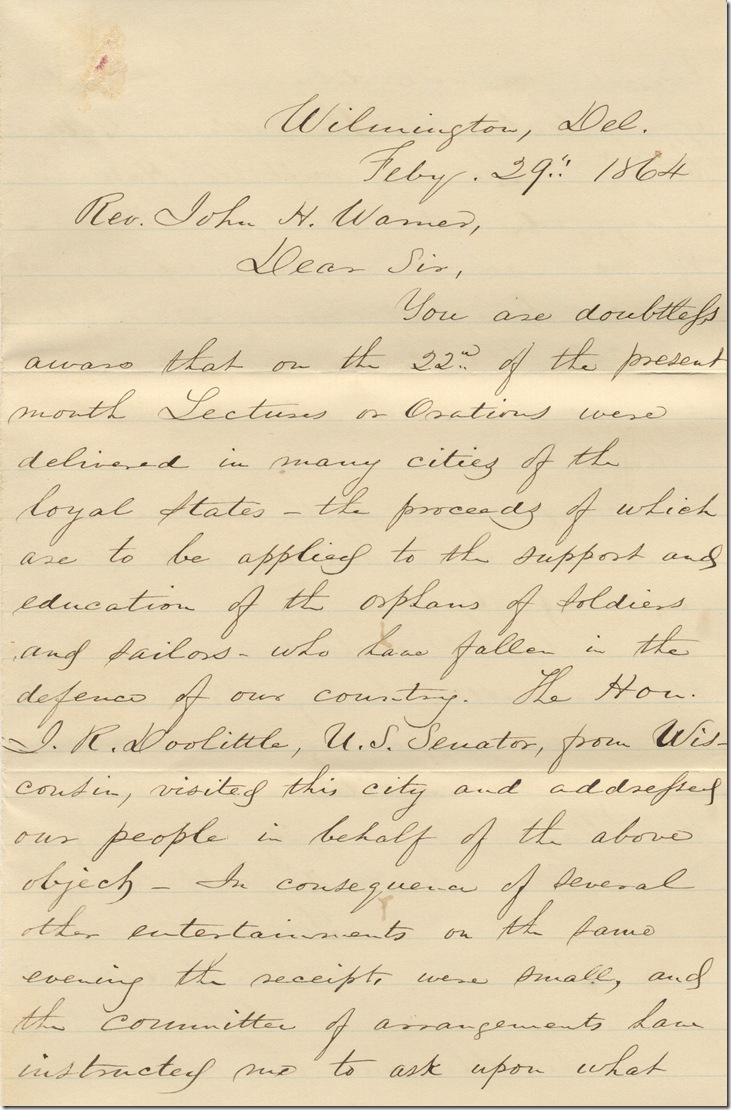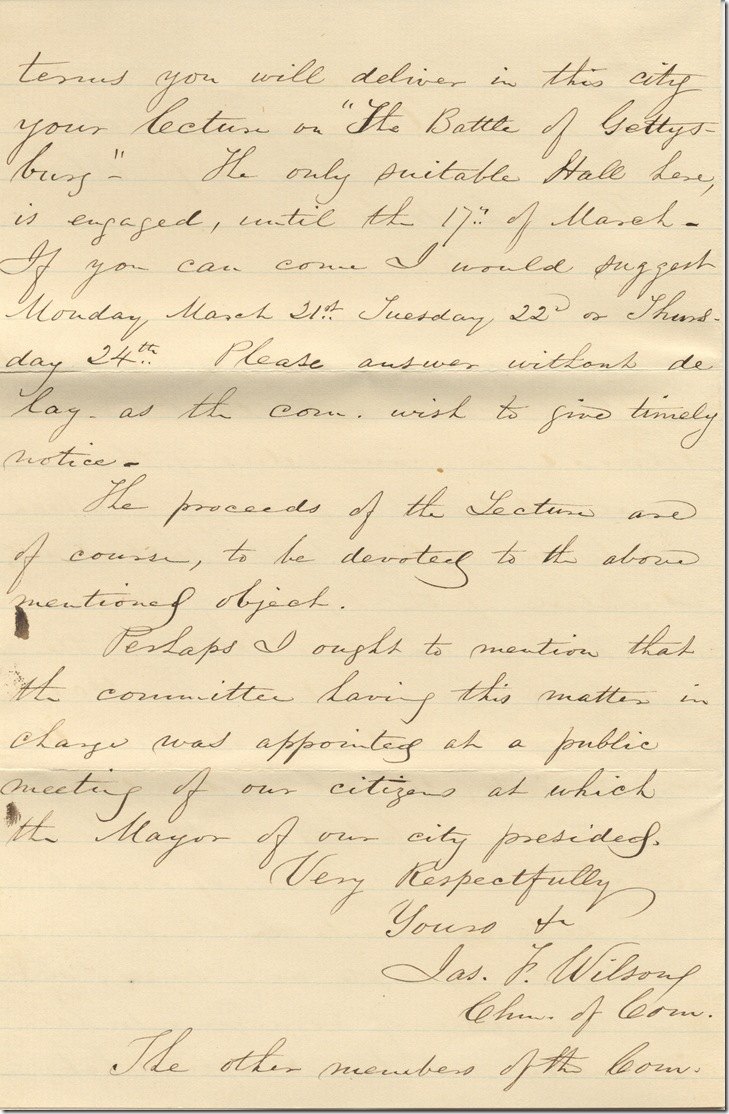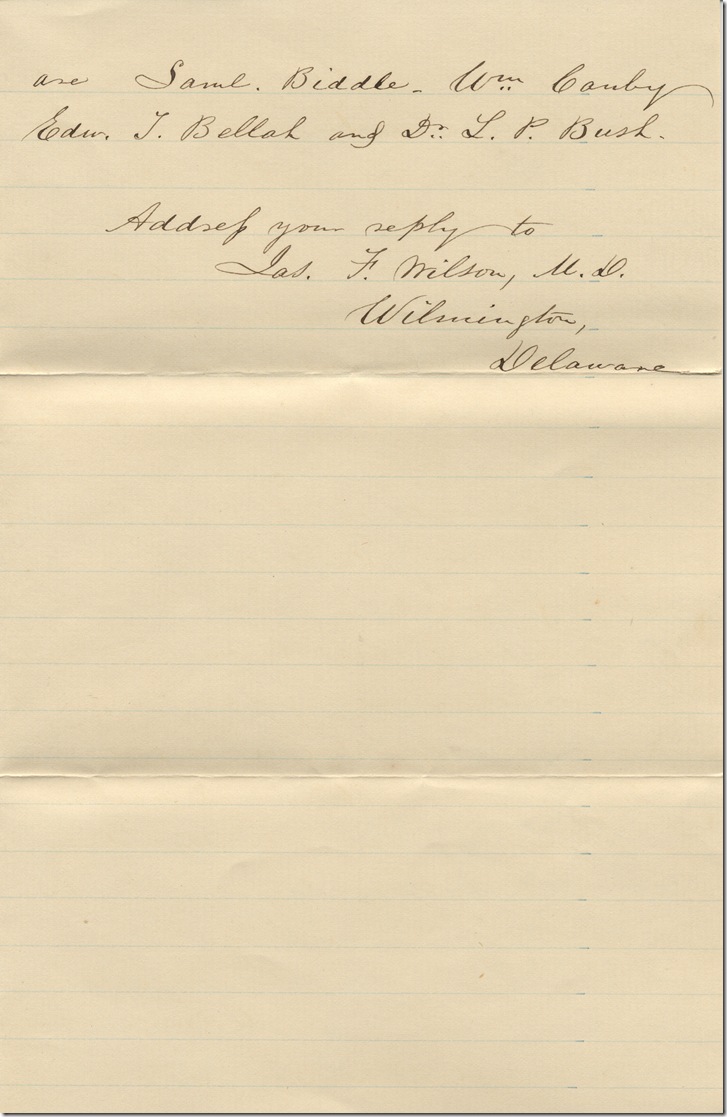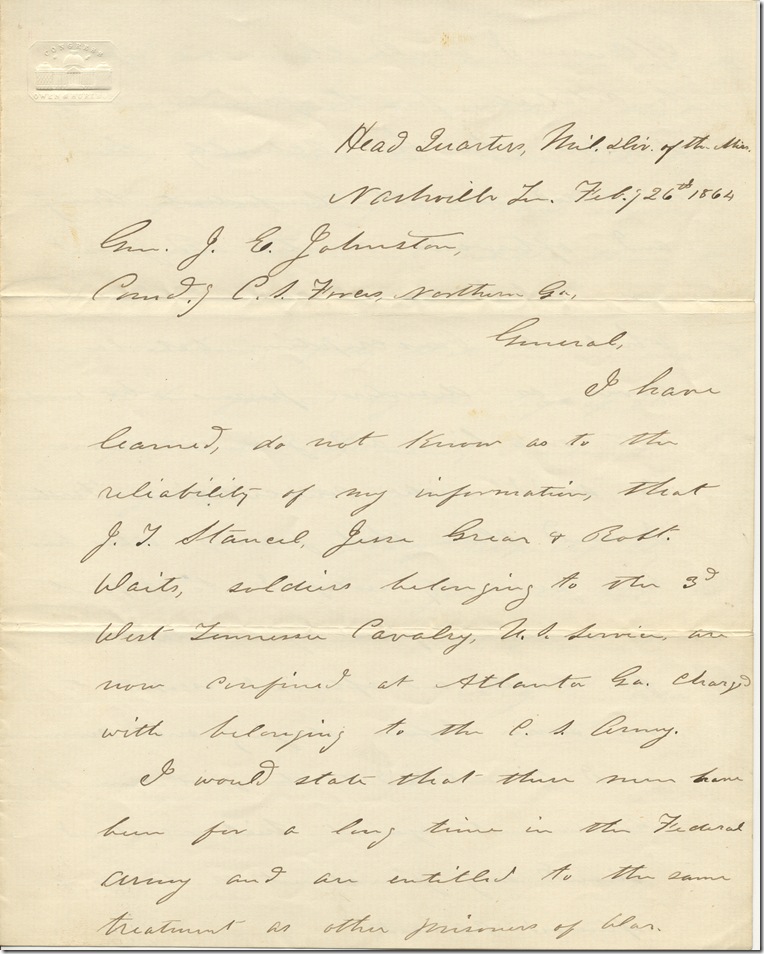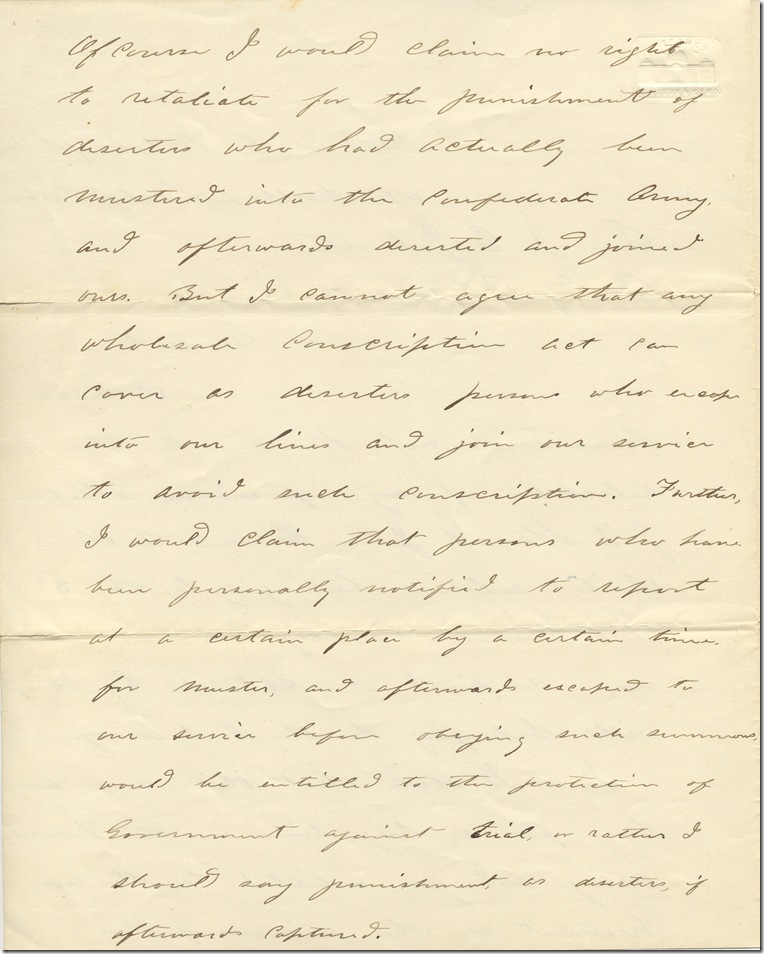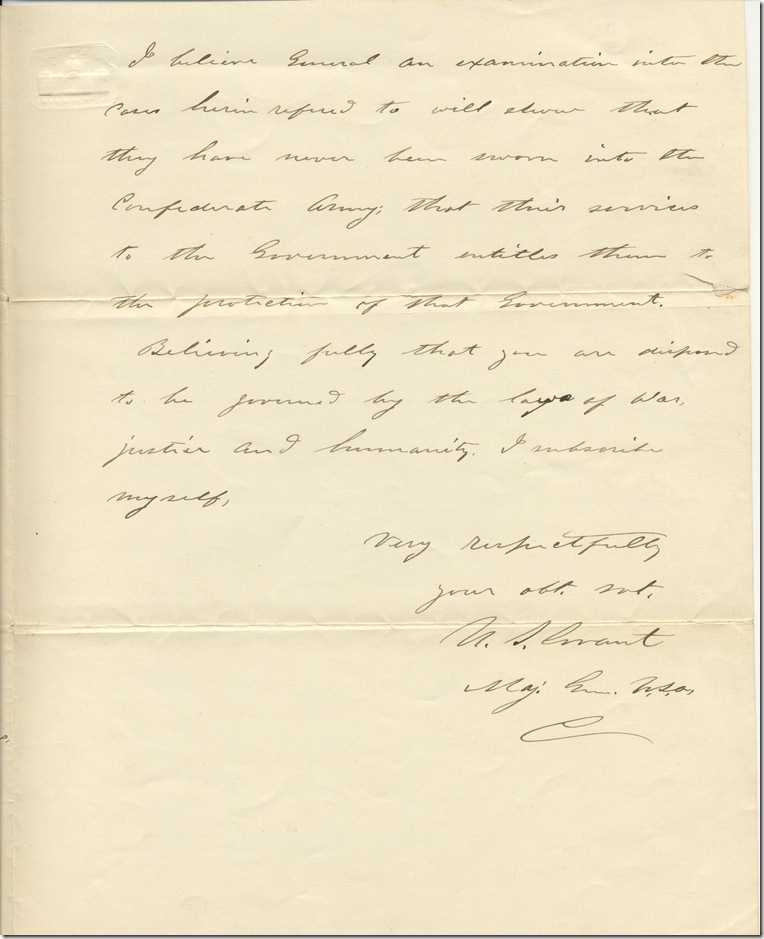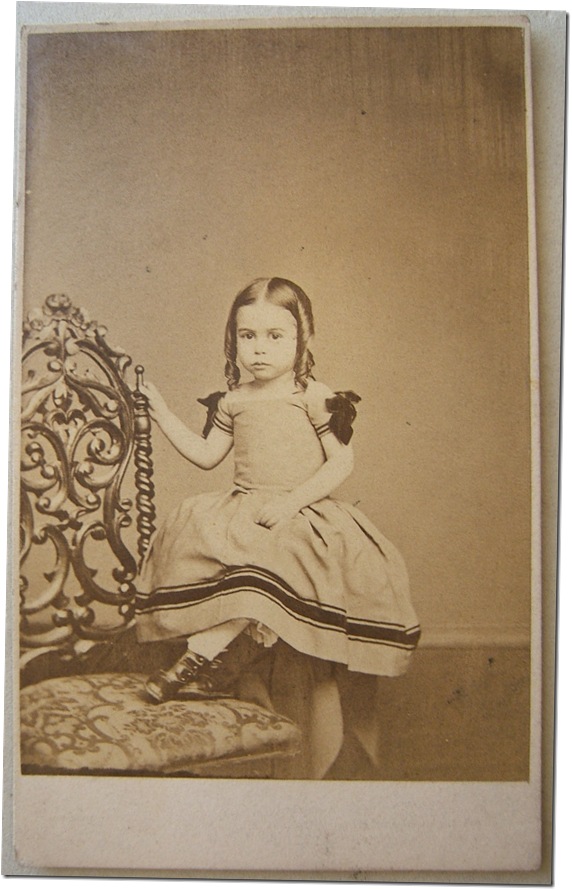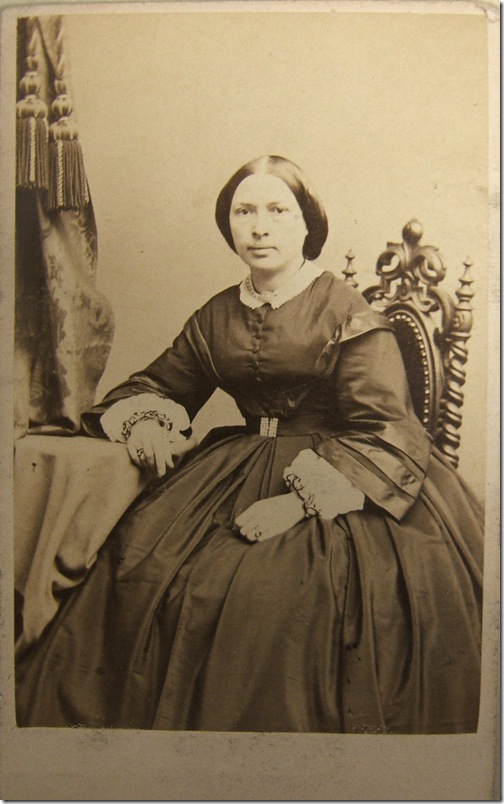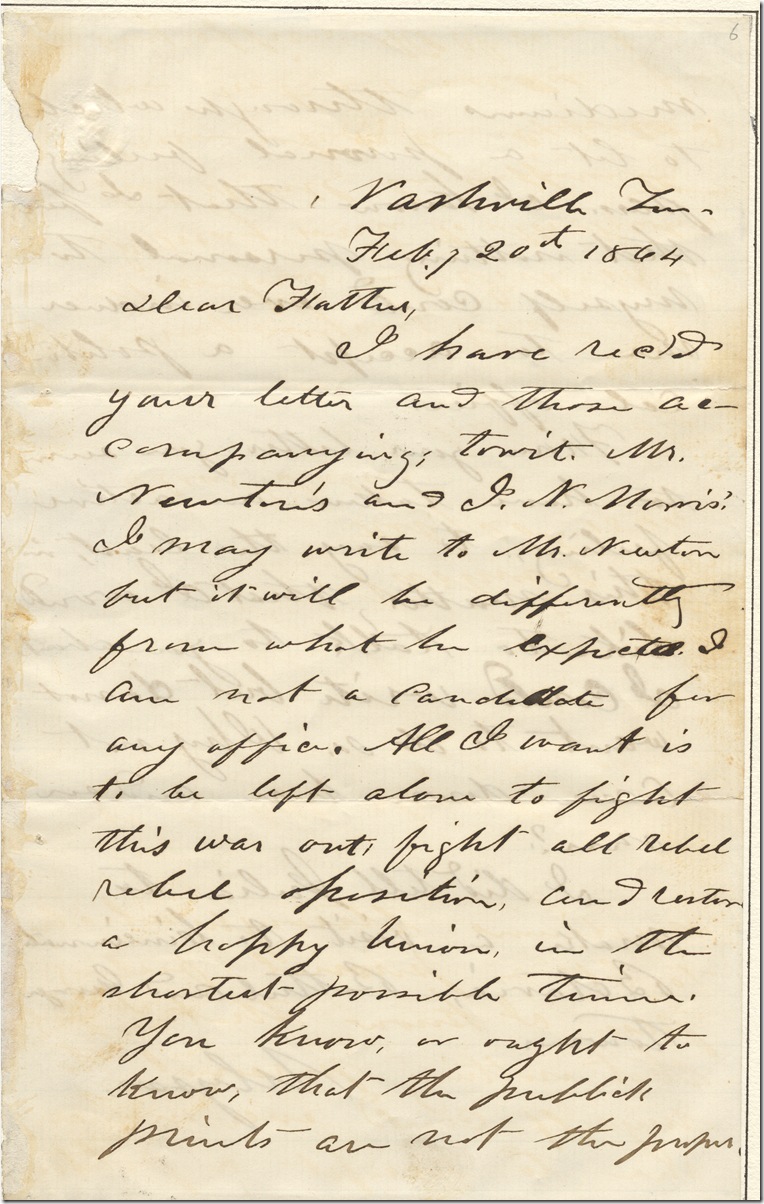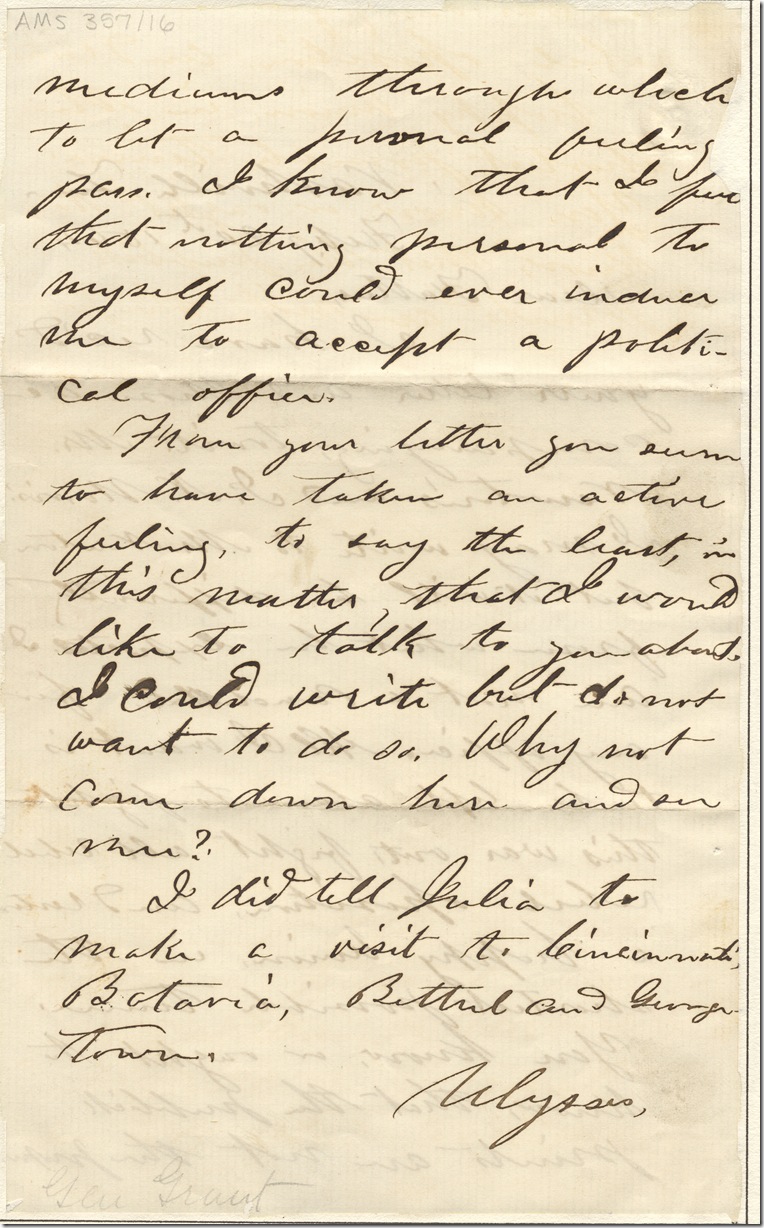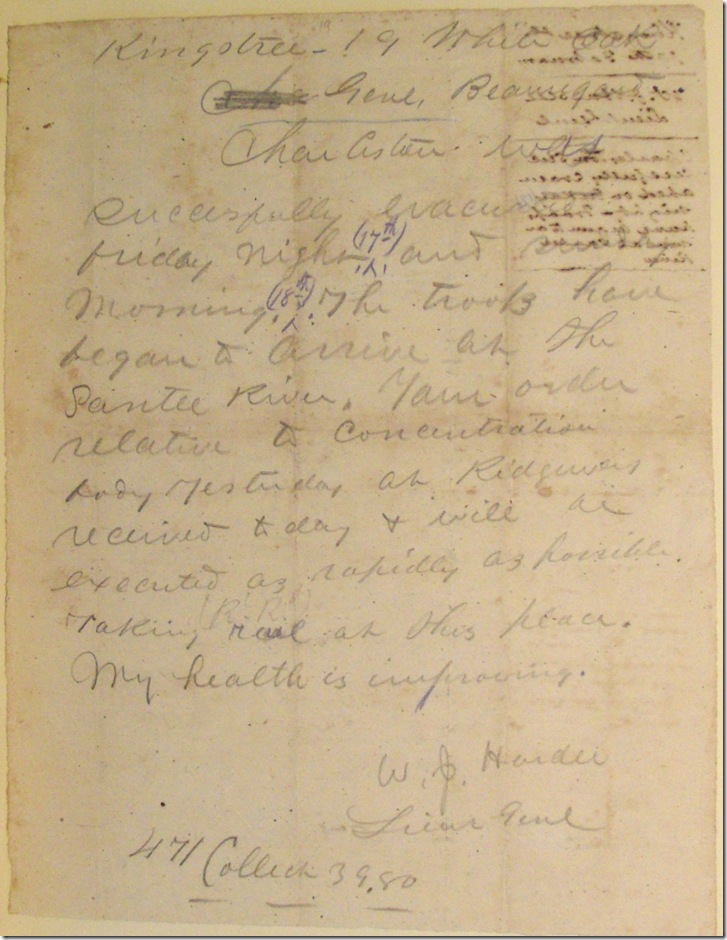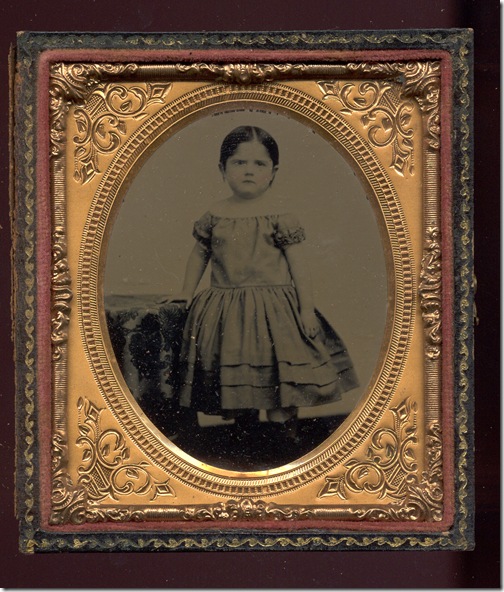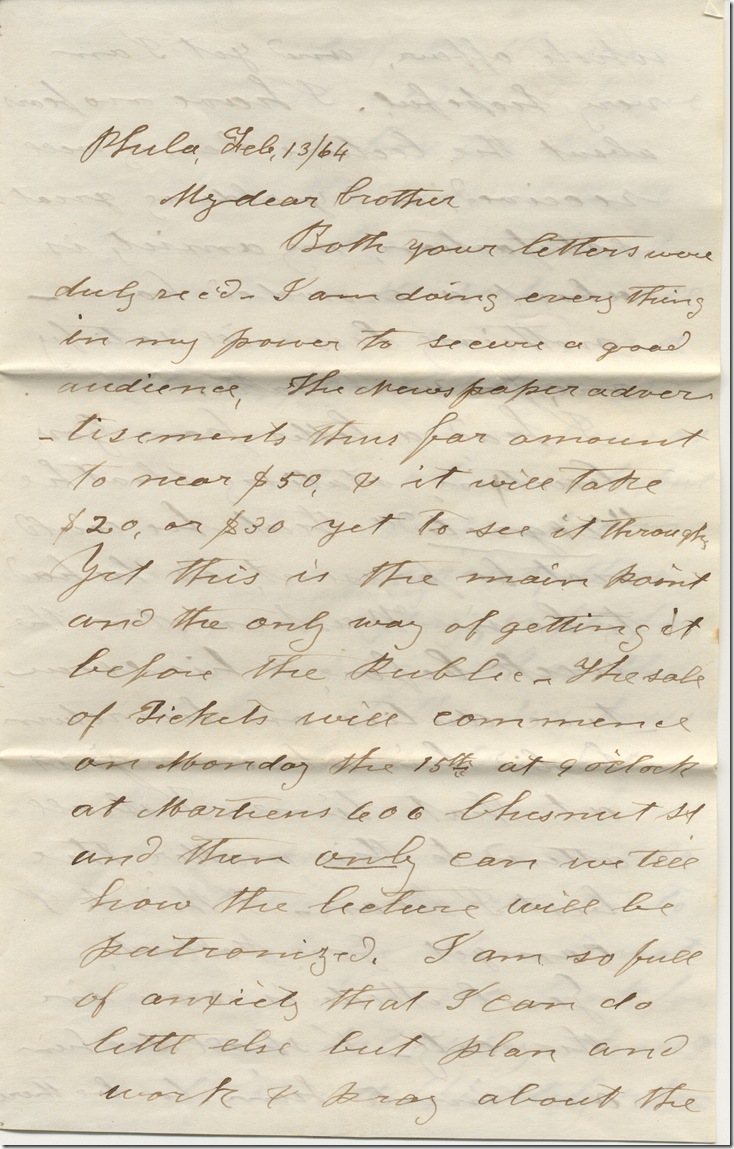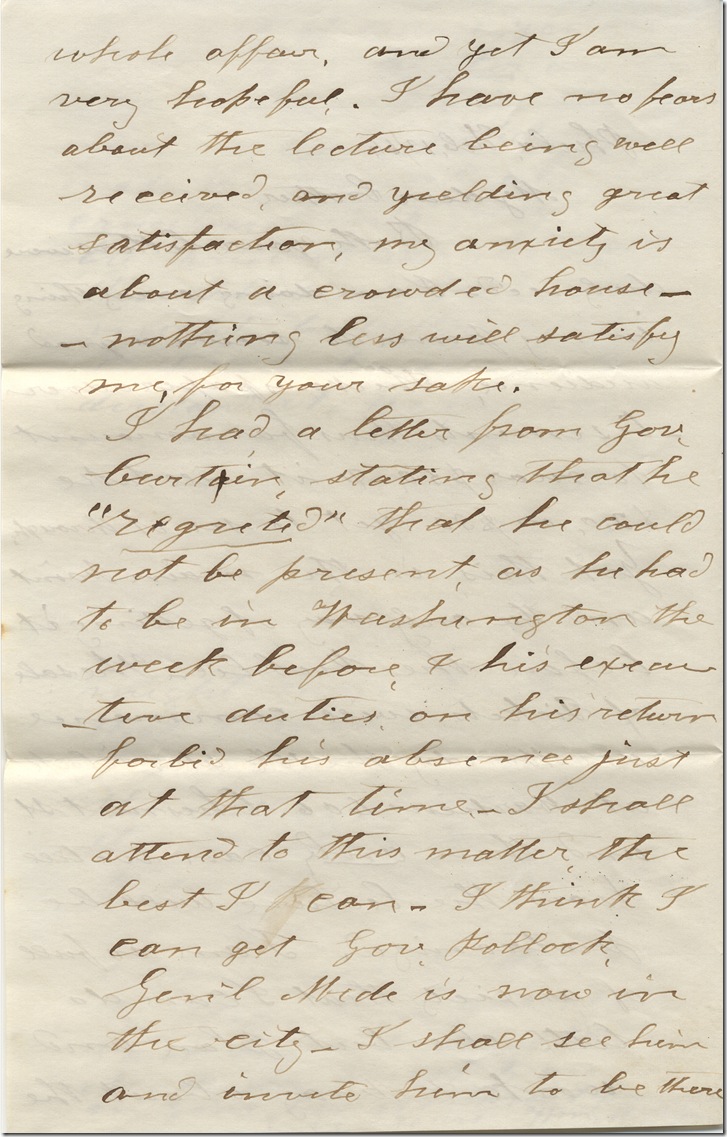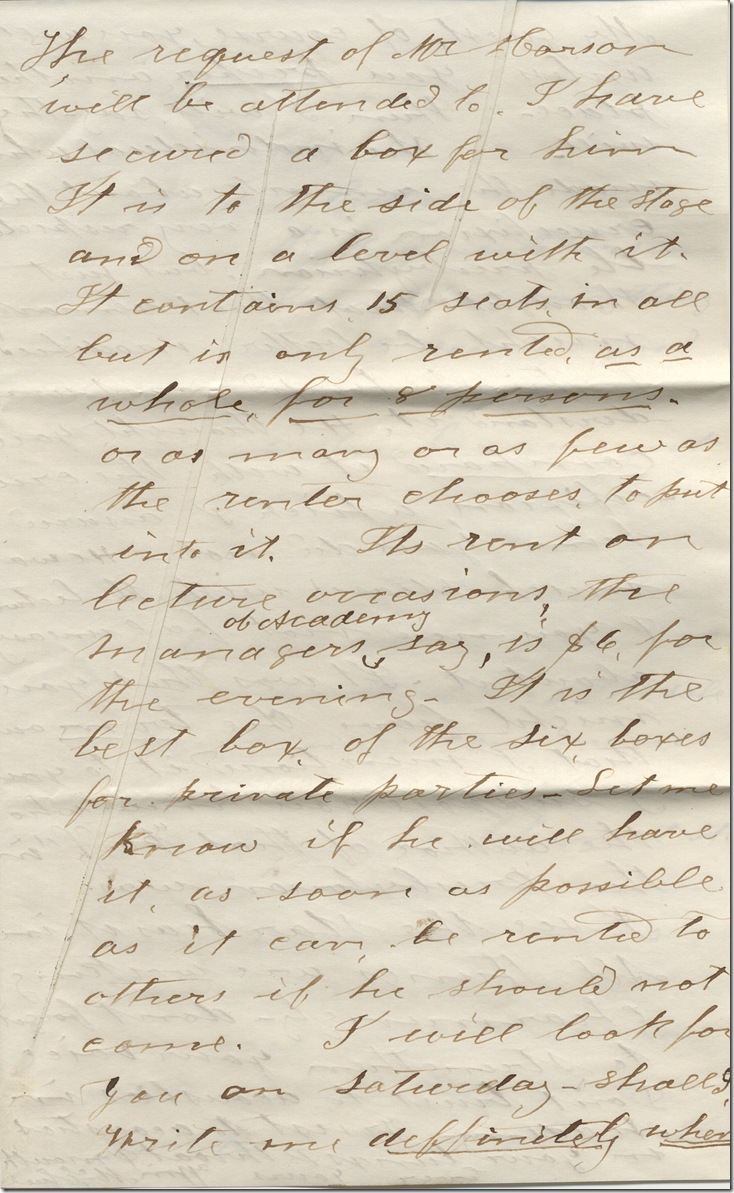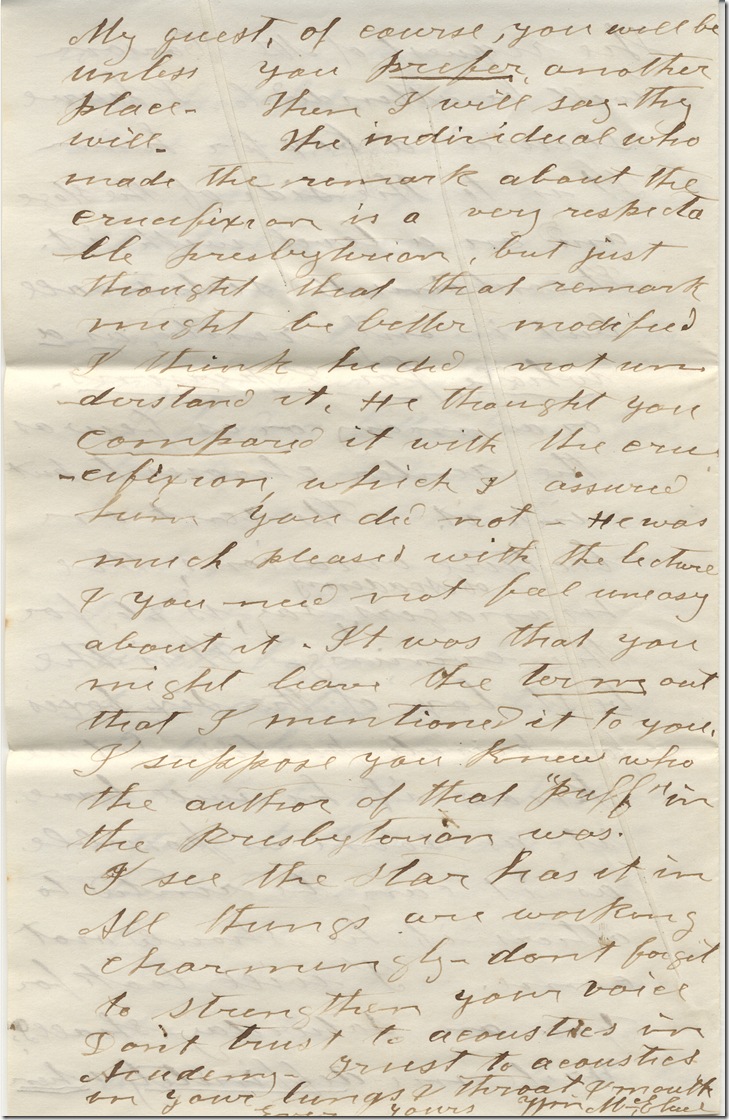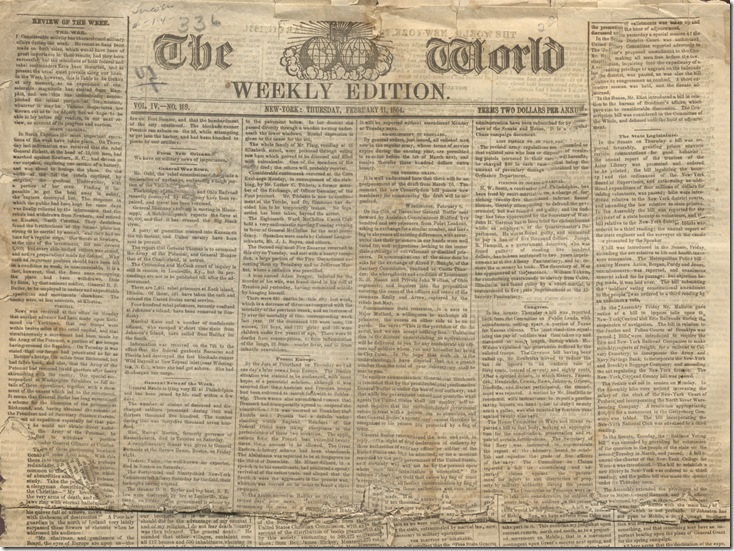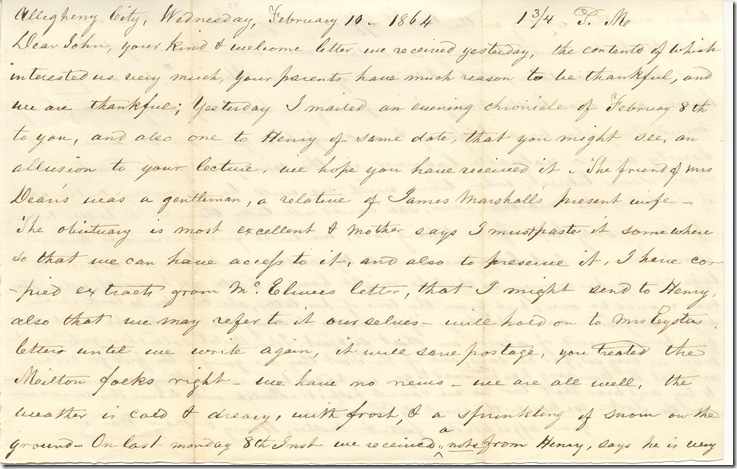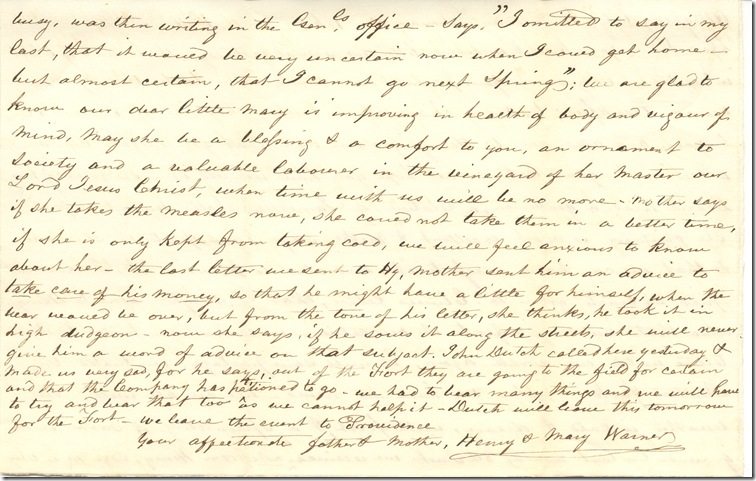Rev. John Riddle Warner was the grandfather of the poet Marianne Moore and during the Civil War, he lived in Gettysburg, Pennsylvania. These letters are preserved as part of Marianne Moore’s family papers.
Transcript:
Wilmington, Del.
Feby. 29th 1864
Rev. John H. Warner,
Dear Sir,
You are doubtless aware that on the 22nd of the present month Lectures or Orations were delivered in many cities of the loyal States—the proceeds of which are to be applied to the support and education of the orphans of soldiers and sailors who have fallen in the defence of our country. The Hon. J.R. Doolittle, U.S. Senator, from Wisconsin, visited this city and addressed our people in behalf of the above object—In consequence of several other entertainments on the same evening the receipt were small, and the committee of arrangements have instructed me to ask upon what terms you will deliver in this city your lecture on “The Battle of Gettysburg”—The only suitable Hall here is engaged, until the 17th of March—If you can come I would suggest Monday March 21st Tuesday 22nd or Thursday 24th . Please answer without delay—as the com. wish to give timely notice.
The proceeds of the Lecture are of course, to be devoted to the above mentioned object.
Perhaps I ought to mention that the committee having this matter in charge was appointed at a public meeting of our citizens at which the Mayor of our city presided.
Very respectfully
Yours &c
Jas. F. Wilson
Cham. Of Com.
The other members of the Com. are Saml. Biddle, Wm. Canby, Edw. J Bellah and Dr. L.P. Bush
Address your reply to
Jas. F. Wilson, M.D.
Wilmington,
Delaware
Citation: James F. Wilson, autograph letter signed to John Riddle Warner. Wilmington, Del., 29 February 1864. Moore VI:6:2
